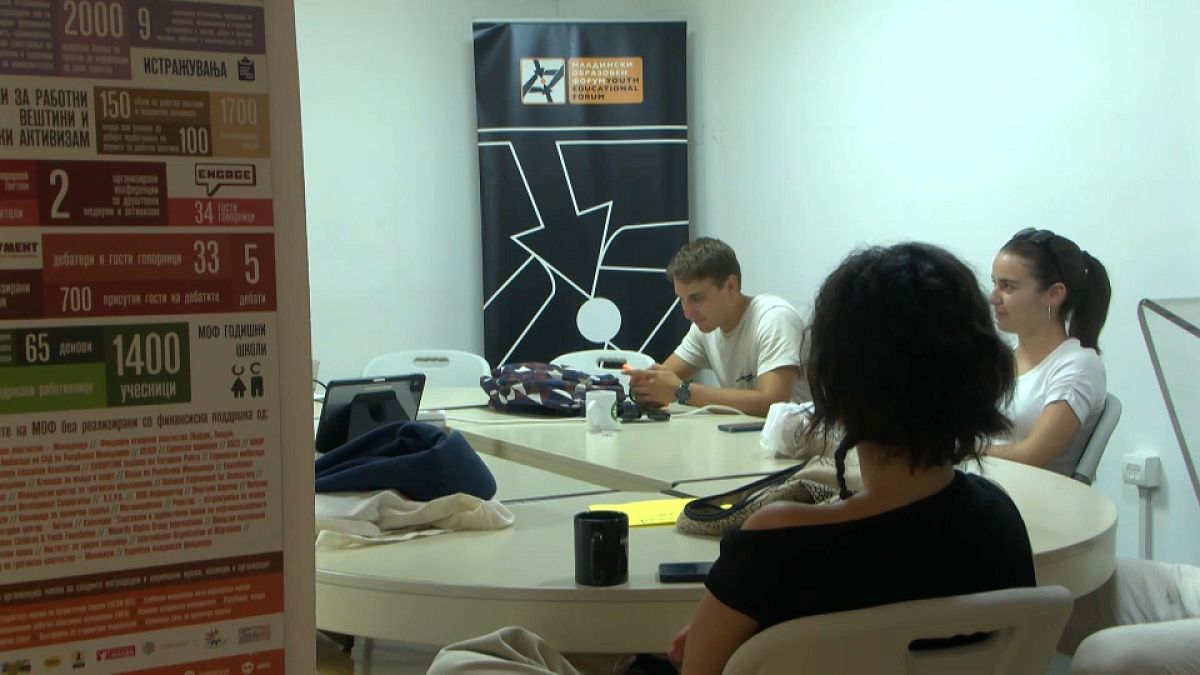Youth brain drain is becoming a concerning issue for the Western Balkan countries of Albania, Bosnia and Herzegovina, Montenegro, North Macedonia, Kosovo, and Serbia. According to the German Marshall Fund, all six countries in this region are among the top leaders in brain drain globally, with estimates suggesting they could lose between 25%-50% of their skilled and educated workforce in the coming years. Young people in these countries often cite reasons such as corruption, lack of opportunities, and a bleak future as driving factors for seeking opportunities abroad. For example, Petar Barlakovski, a young Macedonian who studied in the UK, expressed disappointment in the state of affairs back home, highlighting the absence of improvements in areas such as economy, education, and rule of law.
The Macedonian Ministry of Education reportedly invests millions of euros in scholarships for young people, but experts claim that there is little follow-up or interest in monitoring the outcomes of these programs. Risto Saveski, president of the Youth Educational Forum, mentioned that the ministry lacks data on the number of students completing their studies abroad and whether they choose to return to North Macedonia. This lack of information and oversight contributes to the brain drain dilemma faced by Western Balkan countries, as talented individuals seek better prospects and environments elsewhere. These countries have been experiencing a rapid loss of population over the past three decades as a result of significant emigration. For instance, Serbia has seen a 9% decrease in citizens, North Macedonia a 10% decline, Bosnia a 24% reduction, and Albania a 37% decrease due to emigration.
The challenges of brain drain are further exacerbated by a lack of progress in key areas such as economy, education, and governance. Youth in the Western Balkans often feel disillusioned by ongoing issues such as corruption, limited opportunities for advancement, and stagnant growth prospects. The perception of a grim future and the absence of tangible improvements within their home countries prompt many young people to seek opportunities abroad, where they believe they can build a better future for themselves. Additionally, the disconnect between the government’s investment in education and the lack of follow-up measures to retain skilled individuals also contributes to the brain drain phenomenon. Without adequate support and mechanisms to encourage the return of educated youth, Western Balkan countries risk losing a significant portion of their talent pool to brain drain.
Addressing the root causes of brain drain in the Western Balkans requires a comprehensive approach that tackles issues such as corruption, economic stagnation, and lack of opportunities. Governments in the region must prioritize governance reforms, investment in education and skills development, and creating a conducive environment for businesses and innovation. By addressing these fundamental challenges, policymakers can create a more attractive and sustainable environment for young people, encouraging them to stay and contribute to the development of their home countries. Additionally, tracking the outcomes of education and scholarship programs, as well as implementing measures to retain skilled individuals, are crucial steps in mitigating brain drain and fostering a more thriving and competitive workforce in the Western Balkans.
In conclusion, the youth brain drain phenomenon in the Western Balkans poses significant challenges to the region’s economic and social development. Addressing the underlying issues that drive talented individuals to seek opportunities abroad is essential for reversing the trend of brain drain and retaining skilled workers within the region. By creating a supportive ecosystem that promotes growth, innovation, and opportunities for advancement, Western Balkan countries can stem the tide of brain drain and build a sustainable future for their youth. Collaboration between governments, businesses, and civil society is crucial in implementing effective strategies to tackle brain drain and create a brighter outlook for the next generation in the Western Balkans.











